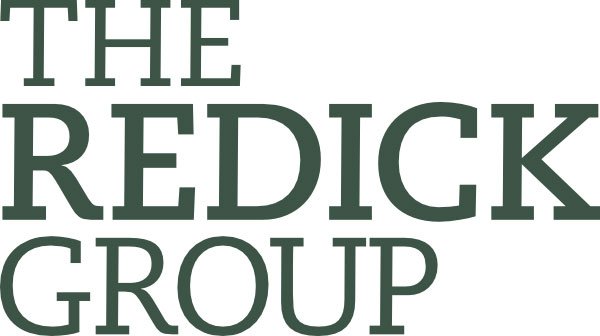Featured Articles
You've made it to the final round for a C-suite role. Your accomplishments are compelling, your credentials solid, your references glowing. The search firm presents three finalists to the hiring committee—and on paper, you're all equally qualified.
What separates you now isn't what you've done. It's how you think.
Understanding the distinction between risk oversight and day-to-day management is central to effective leadership, strategic decision-making, and organizational resilience across every sector, from finance and technology to healthcare and law.
Early in your career, potential and ambition may open doors. At the executive level, what matters is readiness, credibility, and a clear record that you are the company’s next leader for the empty position.
Board service represents the pinnacle of professional leadership—an opportunity to guide organizations at their highest strategic level while bearing significant fiduciary responsibilities.
All Articles
You've spent years at Amazon or Meta performing principal-level work, but your title says "Senior." External recruiters filter you out. Hiring managers offer you roles two levels below your actual scope. Your Big Tech title is systematically undervaluing your experience. This article explains why FAANG companies compress titles, how it sabotages your external job search, and the specific strategies to make your real seniority visible to any employer.
If you're leaving Meta, Google, or Amazon and final-round interviews keep stalling despite strong performance, you're not imagining it. There's a structural pattern here, and it's fixable.
If you're planning to launch a consulting practice as you leave Corporate America or retire, your website positioning matters more than you think. Most new consultants position broadly ("strategic advisory") and spend years repositioning. This guide walks you through the positioning decisions you need to make before you build anything—so you attract the right clients from day one and avoid the costly mistake of generic messaging that makes you indistinguishable from thousands of other consultants.
A senior executive told me she'd work for zero—then rejected $250K as too low. What this reveals about fear-driven career decisions and how to break the pattern.
You've made it to the final round for a C-suite role. Your accomplishments are compelling, your credentials solid, your references glowing. The search firm presents three finalists to the hiring committee—and on paper, you're all equally qualified.
What separates you now isn't what you've done. It's how you think.
You've scaled teams, shipped products, grown revenue—but when you talk to executive recruiters, your story sounds like everyone else's. "Led 80-person engineering team, modernized infrastructure, increased velocity 40%." True, but everyone in the retained search pipeline has a version of that story.
When a board recruiter reached out claiming my background "matched" paid positions, I knew immediately something was off. Here's what legitimate recruitment looks like.
Many senior leaders assume uploading their résumé to LinkedIn helps them get noticed. In reality, it can weaken your executive presence. Learn why C-suite professionals should treat LinkedIn as a leadership communications platform—not a job board—and how to optimize your profile strategically
When your former CEO has passed away, reference requests can feel daunting and delicate—especially if succession was turbulent or you lacked rapport with new leadership. This complete guide unpacks how to communicate your story….
Understanding the distinction between risk oversight and day-to-day management is central to effective leadership, strategic decision-making, and organizational resilience across every sector, from finance and technology to healthcare and law.
The path to executive leadership is usually marked by a series of gateways. Some welcoming and obvious, others hidden and accessible only to those prepared to demonstrate the right qualifications. For many, academic credentials and industry certifications are the quiet signals that indicate access.
Early in your career, potential and ambition may open doors. At the executive level, what matters is readiness, credibility, and a clear record that you are the company’s next leader for the empty position.
Board service represents the pinnacle of professional leadership—an opportunity to guide organizations at their highest strategic level while bearing significant fiduciary responsibilities.
Corporate governance is the system of rules, practices, and processes by which a company is directed and controlled.
It provides the framework for balancing the interests of a company's many stakeholders—including shareholders, management, employees, customers, suppliers, lenders, government, and the community.
The STAR method (situation, task, action, result) is great for interviewing. The CAR method (challenge, action, result) can also be a helpful acronym if you want one less step to think about.
Other hiring entities will look at anything beyond a single thank you note as being pushy, and as a result, they’ll shy away from the candidate. They’ll wonder, “Why the desperation? Is this a signal of something wrong that I should why away from?”
He should find a job with that in mind. He's working toward—and shouldn't lose sight of—an end goal that is already in hand. That said, he's not the first to have that lag between hire and approval when it comes to a government role, so he just needs to find something that flexible that will pay the bills between now and then. And that's not necessarily easy to do unless he takes a step back a bit from his internal expectations.
Well, saddle up, because there's a pretty troubling bug (and important "scrubbing" procedure) you should know before sending out another Microsoft Word document.
In the din of everyday life, I don't actively think much about résumé grammar and spelling. I've done this work now for more than twenty years, so it's a part of the fabric of my work rather than something I obsess about or ponder.
You'll soon be free of the burdensome revelation about salary. At the same time, you'll be barred from asking others about their salary histories.
Korn Ferry's November 2017 article "Asking About Salary History? That's History" shares that U.S. states are making strides toward pay equity in ways we couldn't have imagined just a few years ago.
In short, any time you run into the word "of," see if you can flip the words on either side of "of" while keeping the original meaning intact. It won't always work, as you'll see below, but it's worth considering every time you see the word "of" in your writing.
Many of my clients are clear that they are leaders. Their job titles, in fact, begin with a "C," and they have a great deal of vision and responsibility. Plain and simple.
For other clients, however, they're still feeling it out, or they're laying their leadership groundwork, or they're sensitive about calling themselves a leader. Still others say they're a leader, but have little to prove it.
For starters, remember to always think of LinkedIn as a tool for business, not an online résumé. Even though LinkedIn fancies itself as just that—an online résumé (and then wonders why more people don't engage)—executives should not treat LinkedIn as an online résumé.
Ever fallen in love with a word or phrase, only to discover that everyone else is loving it, too? A word we all seem to be loving a bit too much right now is "amplify," so it's only a matter of time before it ranks on one of the interweb's "most overused business phrases" lists.
Because no matter how successful many professionals become, when it comes to job interviews, too many default into fresh-out-of-college mode. Or worse, compensating behaviors.
Imagine that Miss USA had a LinkedIn profile. Now imagine that somewhere in that profile she included the phrase, "I’m beautiful." Why? Because she believed it was a keyword or phrase by which others would find a beauty queen.
Now imagine that the late Steve Jobs had a LinkedIn profile, and somewhere in his profile he said, "I'm an innovator." Why? Because he had a hunch that someone might enter “innovator” into LinkedIn’s Advanced Search tool to find someone like him.
Do either of the above scenarios sound right?
Part of BryceLegal.com's How I Got My Legal Dream Job Series, "How to Become One of the Most Powerful Lawyers in New York State Government," reflects Shauna's unparalleled access and gives the world insights into the decisions behind one lawyer's rise to influence. It's an uncommonly candid story of quiet struggle and ultimate triumph.
As infants, we learn that star-shaped pegs fit only in the star-shaped holes. So why do we backslide as adults and start thinking our star-shaped pegs should suddenly fit into square holes?
If you haven't discovered the wonders of the minus symbol when querying LinkedIn search, or the benefits of incrementally refining search parameters using other query features, take a moment to tinker and see if LinkedIn doesn't finally become the business tool you can't live without.































By recognizing these challenges and implementing structured strategies to combat professional isolation, both individuals and companies can ensure that their legal leadership remains dynamic, well-rounded, and prepared for the evolving demands of the corporate legal landscape.